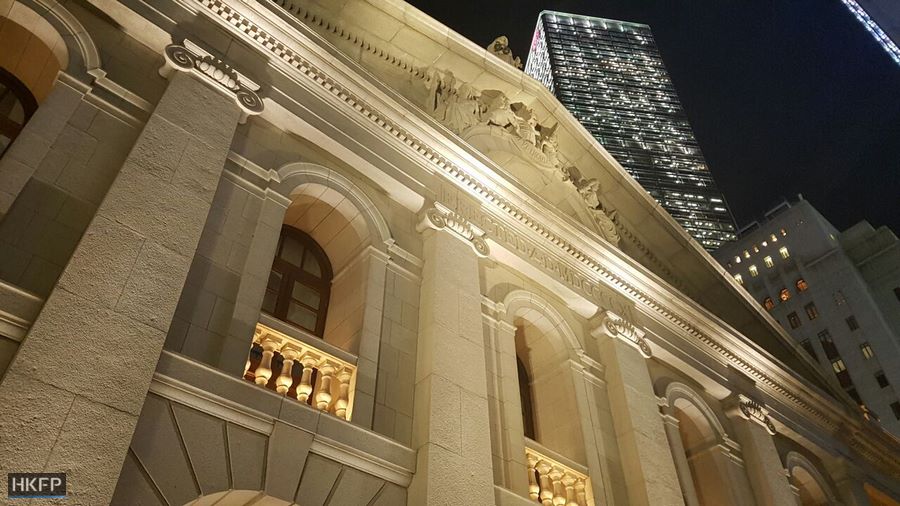Youngspiration politician Baggio Leung Chung-hang said on Friday that he expected the oath dispute to reach the Court of Final Appeal after a judgment on his and Yau Wai-ching’s appeal is made early next week.
“We have finally got to the core of the matter. We hope the court will give a clear answer to Hongkongers on this constitutional issue,” Leung said outside the court, referring to Beijing’s controversial interpretation on the Basic Law handed down earlier this month in response to the oath controversy.

‘Core of the issue’
The trial judge held last Tuesday that even without Beijing’s interpretation, he would have arrived at the same conclusion that Leung and his party colleague Yau Wai-ching should be disqualified based on their controversial conduct during last month’s swearing-in session at the legislature.
But the three judges of the Court of Appeal said that parties to the dispute should not rely on common law – the legal system used in Hong Kong – to back up their arguments. Rather, the judges shifted the focus to the application of Beijing’s ruling.
The High Court’s Chief Judge Andrew Cheung Kui-nung said Thursday that it would be “arrogant and ignorant” for Hong Kong’s courts to decide what China’s legal system can or cannot do under the One Country, Two Systems framework.
When Leung’s lawyer Hectar Pun cited a case in 1999 in which the Court of Final Appeal stated that it had jurisdiction over Beijing’s rulings, Mr Justice Poon Shiu-chor responded: “It is a matter for civil law, not common law.” Mr Justice Cheung asked Pun to provide expert evidence.
After the appeal hearing concluded on Friday, Leung said it was important for the court to resolve the question as to whether Beijing’s ruling was valid. His position was that Beijing’s move amounts to an amendment of the Basic Law, which should follow a different procedure under the mini-constitution.

“It looks like we have to go to the Court of Final Appeal if we want a better explanation that is based on common law principles,” he said. “But we still welcome the court’s discussion today on the interpretation – which is the core of the issue.”
He said the current constitutional crisis was brought about by the Hong Kong government – by filing an unprecedented judicial review against the lawmakers – as well as Beijing, which used its interpretive power to “amend” the mini-constitution and local laws.
“We must resolve this issue. If not – let me give an extreme example – if the legislation of Article 23 [security law] is passed and carries a retrospective effect, then perhaps reporters who have written anything pro-democracy or anti-Beijing might violate the law. It is a very dangerous thing for Hong Kong,” Leung said.
Hong Kong-China relations
The legal dispute relates to the larger political struggle among the independence-leaning faction in the territory. Since the oath dispute arose, a wide array of government officials and politicians have voiced opposition to Hong Kong independence.
Hong Kong’s last governor Chris Patten is the latest such voice, who said on Friday that the pro-independence movement “makes a mockery” of Hong Kong’s democracy movement.

Leung responded that discussions on Hong Kong’s relations with China – including the current legal dispute before the court – are an essential aspect of the democracy movement.
“I respect Chris Patten’s point of view, but regardless of his view, the indisputable fact is that there are demands for independence and self-determination,” Leung said. “If we want democracy, we cannot avoid dealing with the relationship between China and Hong Kong – and the discussion on self-determination and independence is part of the process of fighting for democracy.
“We can only attain democracy if we have a proper discussion on Hong Kong-China relations.”

